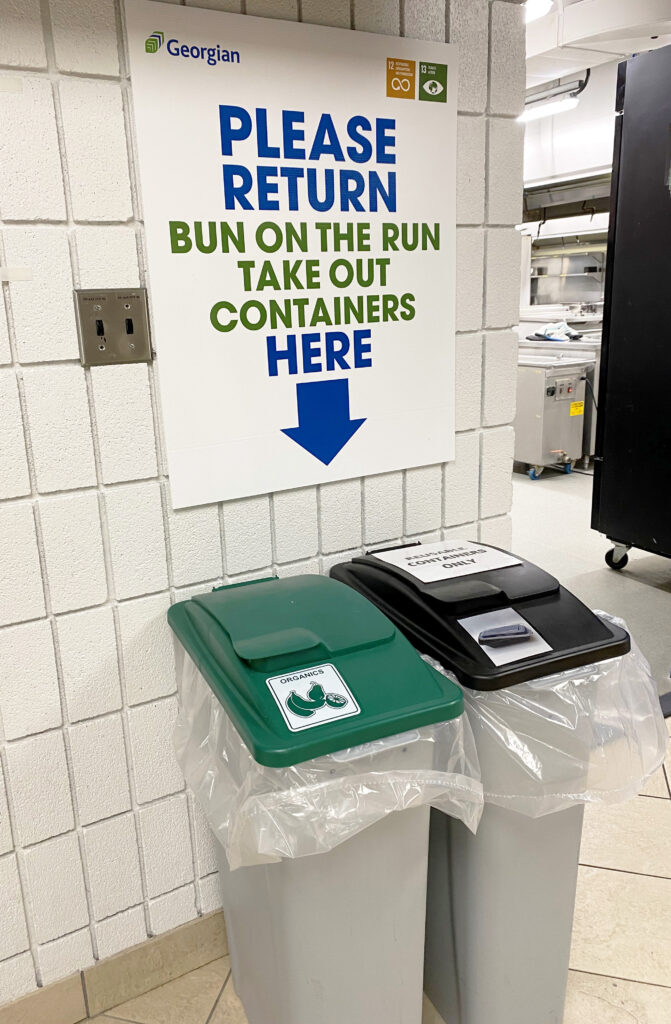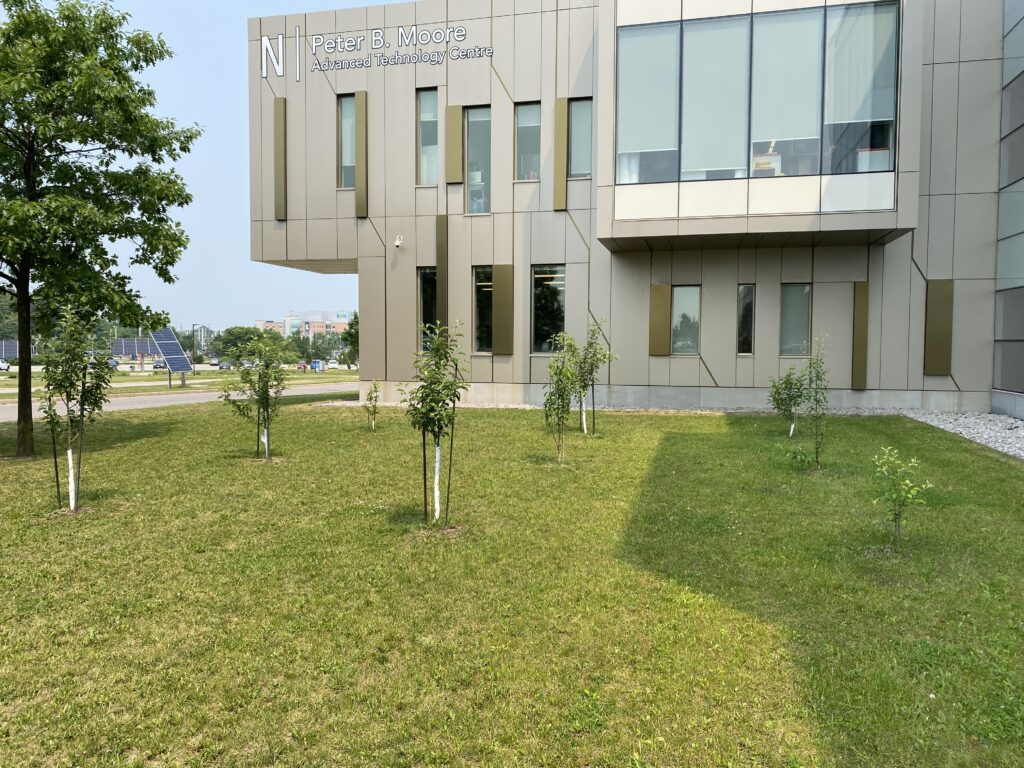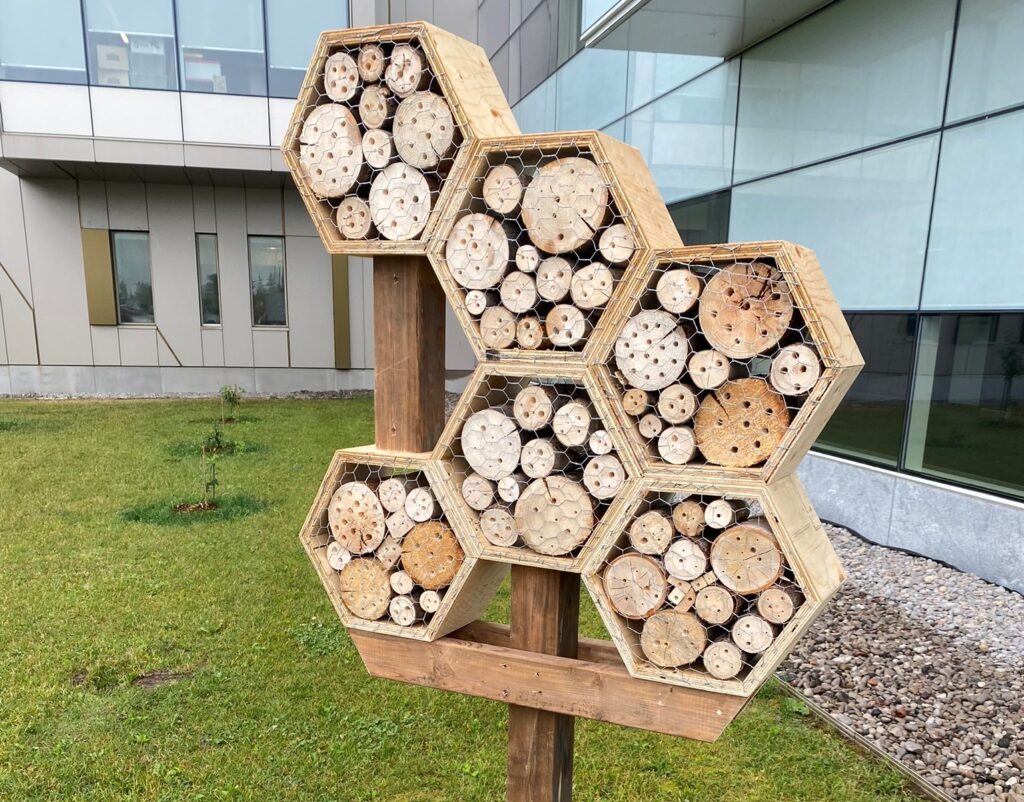Georgian’s culinary programs cooking up ways to reduce carbon footprint
June 28, 2023
As Canada’s first and only Ashoka U changemaker college, Georgian uses research, innovation and entrepreneurship to bring changemaking into action. Over the last few years, our hospitality, tourism and recreation students have been working together with faculty on several projects to meet our United Nations Sustainable Development goal (UN SDG) of reducing the college’s carbon footprint.
Bun on the Run takeout food service

Bun on the Run is a live learning lab for students in our culinary, baking and hospitality programs. They prepare and serve meals to students, employees and community members in reusable containers with bamboo cutlery, reducing single-use plastics. Afterwards, you can return the containers to a bin to be washed.
Barrie Campus garden
We plant a variety of produce, from zucchini and tomatoes to squash and beans, that’s used in student learning labs and the Georgian Dining Room. Any extra food that doesn’t get used goes to the Georgian Food Locker to support students in need.
Orchard trees

Pear, cherry and apple trees were also planted at the Barrie Campus for a few different reasons. Once these trees are fully grown, this will help limit the amount of food we need to bring in from outside the college, reducing gas mileage from delivery trucks. Trees also do a great job at absorbing carbon emissions from the atmosphere, helping to lower our overall carbon footprint.
Beehives and bee domiciles

Beehives were brought onto campus to produce honey for our culinary programs. A group of students also built a bee domicile – basically a hotel for bees. The Bee Lodge is a home for native pollinators who don’t make their own hives and need a place to live.
Did you know you can build your own bee domicile? Drill holes into a decorative piece of wood, or make tunnels out of parchment paper, cardboard or bamboo. Make sure to also provide bees with natural plants for food.
Georgian was also recently named a Bee Campus by Bee City Canada. This means that we’re recognized as one of 19 campuses across the country committed to creating, maintaining and/or improving pollinator habitats. Our Georgian College Pollinator Team also helps to educate our community about the importance of pollinators.
In-class learning about the UN Sustainable Development Goals
In all of Georgian’s culinary programs, students can work on their own sustainability project to learn about the UN SDGs. They can practice their research, innovation and entrepreneurial skills to tackle an issue and apply that learning when they graduate. We’re also in the process of creating a micro-credential that students will be required to take that will introduce them to the UN SDGs.
It’s especially important for those in hospitality, tourism and recreation to learn about environmental sustainability. This industry has a large carbon footprint and students are learning how they can help reduce that. They have the ability to spark change in their future careers and change an entire industry landscape.
Bryan Hunt, Dean, Hospitality, Tourism and Recreation